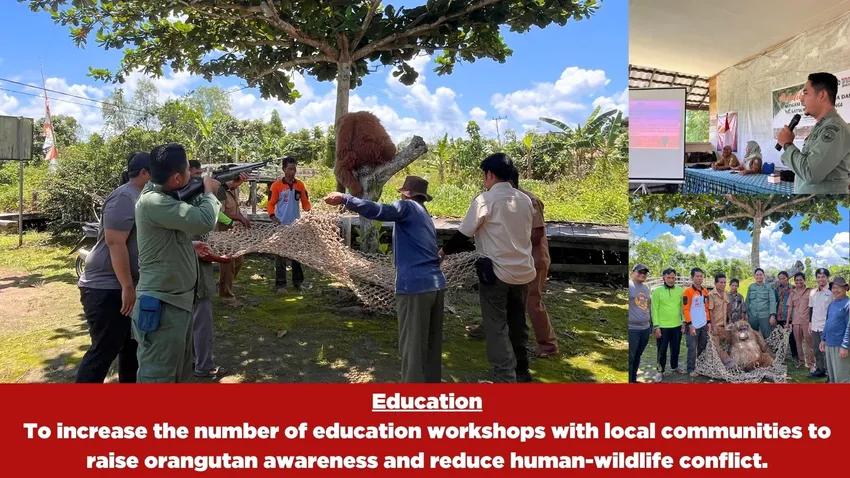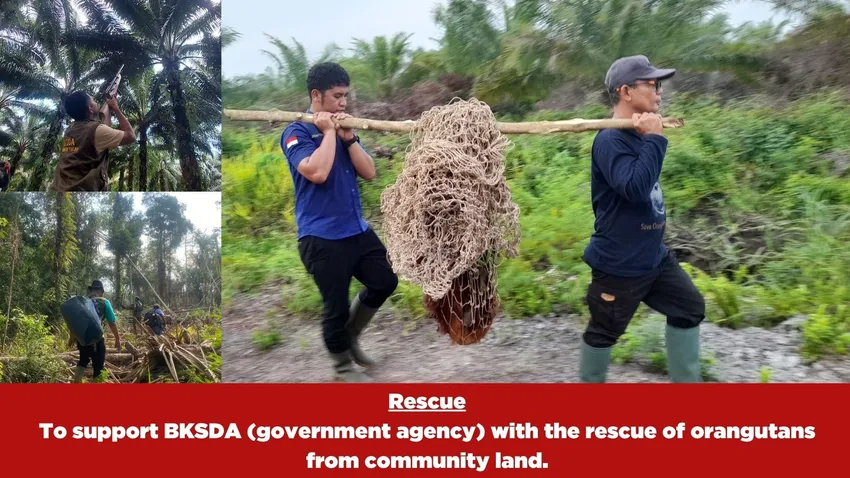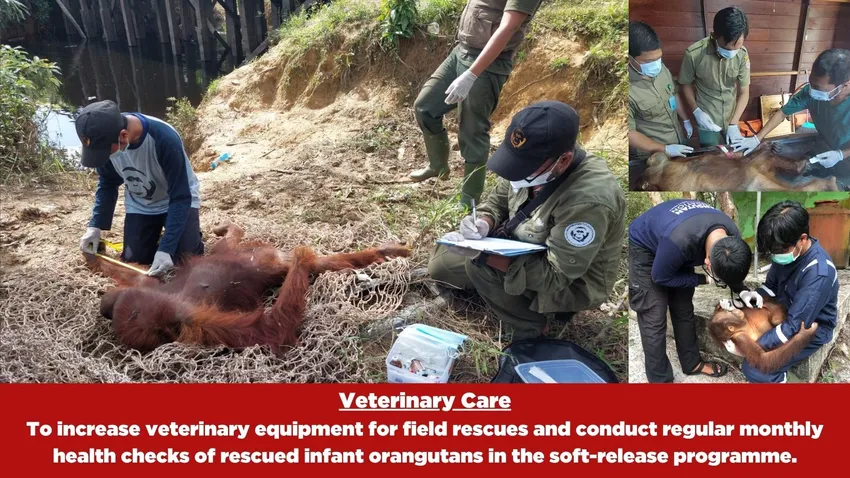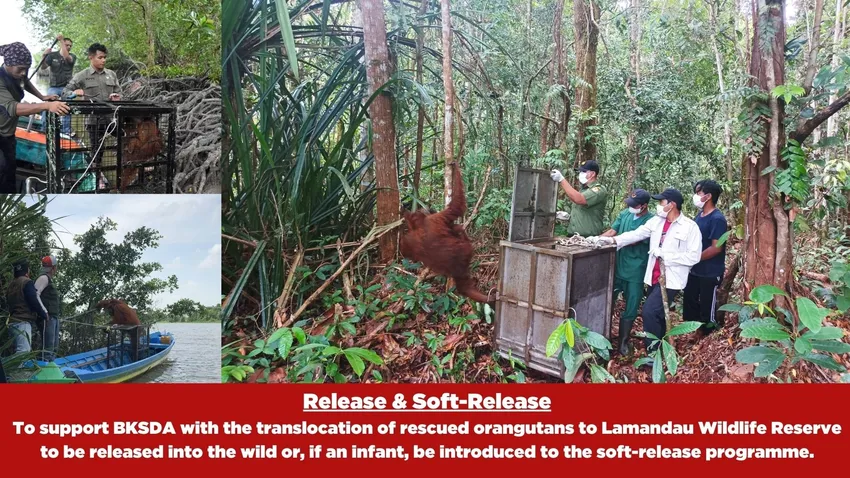Orangutans are increasingly leaving their forest habitat and venturing onto community land searching for food. Human-orangutan conflict must be mitigated. To ensure orangutans are safely returned to the wild, educating local people on appropriate responses and veterinary care is crucial.
Categories
Beneficiaries
Deforestation and climate change affect fruiting patterns which has resulted in more orangutans venturing onto community land, like oil palm plantations and gardens, to forage for food. Consequently, human-orangutan conflict has increased. Despite our outreach with local villages, there are still many communities unaware of what steps to take when finding orangutans on their land. To cover such a large area, we need more resources, and orangutans that must be rescued will need veterinary care.
By educating local communities and farmers about how to act when they encounter orangutans on community land, human-orangutan conflict can be reduced, benefiting both orangutans and local livelihoods. Any presence of orangutans should be reported to BKSDA (government organisation) who then contact us to assist with the rescue and veterinary care. More orangutans will be translocated back into the wild or, if an orphaned infant, be introduced to the soft-release programme.



